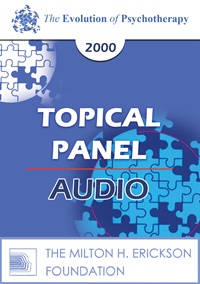EP00 Topical Panel 09 - Couple/Family Therapy - William Glasser, MD; John Gottman, PhD; Salvador Minuchin, MD; Peggy Papp, ACSW
- Average Rating:
- Not yet rated
- Topic Areas:
- Topical Panels | Couples Therapy | Family Therapy
- Categories:
- Evolution of Psychotherapy | Evolution of Psychotherapy 2000 | Pioneers in Couples and Family Therapy
- Faculty:
- William Glasser, MD | John Gottman, PhD | Salvador Minuchin, MD | Peggy Papp, ACSW
- Duration:
- 53 Minutes
- Format:
- Audio Only
- Original Program Date:
- May 27, 2000
- License:
- Never Expires.
Description
Description: This panel addresses how marital and academic failures can affect families. Topics include the harm of control-based dynamics in relationships, the need for reducing negativity and improving conflict resolution in therapy, and the value of self-change and community support. The discussion also covers challenges faced by single-parent families and the importance of policy reforms to better support family systems.
Moderated by Ruth McClendon, MSW
Educational Objectives:
- To compare and contrast clinical and philosphical perspectives of experts.
*Sessions may be edited for content and to preserve confidentiality*
Credits
Handouts
| Timestamped Transcript (828.4 KB) | 19 Pages | Available after Purchase |
| Ericksonian Learning Snapshot (251.4 KB) | 2 Pages | Available after Purchase |
Faculty
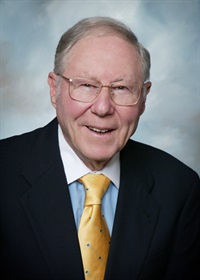
William Glasser, MD Related Seminars and Products
William Glasser, MD, who received his MD degress in 1953 from Case Western Reserve University was an American psychiatrist. William was awarded an honorary doctorate in human letters by the University of San Francisco. Founder and Director of the Institute for Reality Therapy, he was authoer and editor of ten books on the topics of reality therapy and education. He was also the developer of Choice Theory. His ideas, which focus on personal choice, personal responsibility and personal transformation, are considered controversial by mainstream psychiatrists, who focus instead on classifying psychiatric syndromes as "illnesses", and who often prescribe psychotropic medications to treat mental disorders.
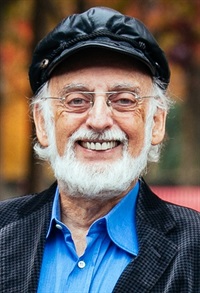
John Gottman, PhD Related Seminars and Products
John Gottman, PhD, was one of the Top 10 Most Influential Therapists of the past quarter-century by the Psychotherapy Networker. Dr. Gottman is a professor emeritus in psychology known for his work on marital stability and relationship analysis through scientific direct observations, many of which were published in peer-reviewed literature. He is the author or co-author of over 200 published academic articles and more than 40 books, including the bestselling The Seven Principles for Making Marriage Work; What Makes Love Last; The Relationship Cure; Why Marriages Succeed or Fail; and Raising An Emotionally Intelligent Child, among many others.
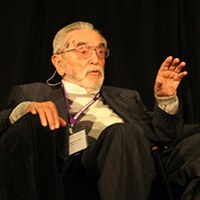
Salvador Minuchin, MD Related Seminars and Products
Salvador Minuchin, MD, developed Structural Family Therapy, which addresses problems within a family by charting the relationships between family members, or between subsets of family. He was Director of the Philadelphia Child Guidance Clinic. Although it was minimally staffed when he began, under his tutelage the Clinic grew to become one of the most modeled and respected child guidance facilities in the world. In 1981, Minuchin began his own family therapy center in New York. After his retirement in 1996, the center was renamed the Minuchin Center. Dr. Minuchin is the author of many notable books, including many classics. His latest is Mastering Family Therapy: Journeys of Growth and Transformation. In 2007, a survey of 2,600 practitioners named Minuchin as one of the ten most influential therapists of the past quarter-century.
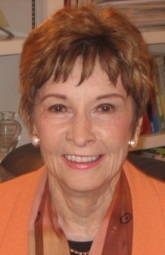
Peggy Papp, ACSW Related Seminars and Products
PEGGY PAPP, A.C.S.W., is a therapist in private practice and Co-Director of the Brief Therapy Project at the Ackerman Institute for Family Therapy in New York City. She is recipient of the lifetime achievement award from the American Family Therapy Association and the award for distinguished contribution to Marital Family Therapy from the American Association for Marital and Family Therapy. Her latest book is Couples On the Fault Line.


